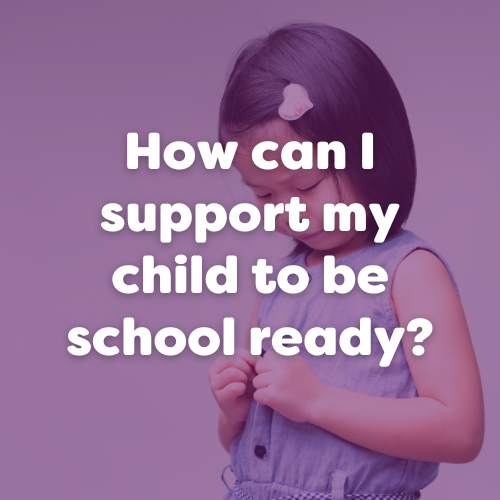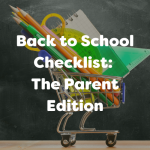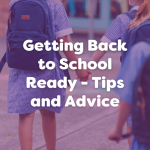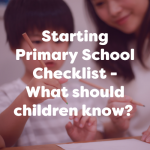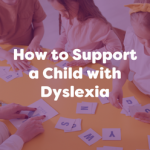“School Readiness” is a phrase often thrown around this time of year in advance of the September start dates but what does it actually mean?
Being “school ready” simply means your little one has:
- Good social skills
- The ability to cope emotionally with being separated from their caregivers
- A certain level of independence
- A curiosity about the world that will prompt their desire to learn
For a more detailed list of what your little one should/could know before starting school, read our dedicated blog here “Starting Primary School Checklist – what are children expected to know?”
In this blog, we will share some activities for you to do with your little ones over the summer to get them ready to start school. It is, however, important to remember that children are unique and will not all be at the same level when it comes to starting school so please use this as a mere guide.
1. Talk about starting school

Our first suggestion is perhaps the most obvious but naturally, the more a topic is discussed, the more familiar the idea will become. Try and ask your little ones questions to establish their feelings such as:
- What do they think school will be like?
- What are they most looking forward to?
- Is there anything they are worried about?
If chatting openly is something that might be a bit challenging to begin with why not turn it into a game? Using dolls you could set up imaginative play scenarios for your little ones where the dolls or toys go to school and use this as a prompt. Alternatively why not try and create some conversation cubes with key questions to ask? This will be a more playful way to establish how your child is feeling.
2. Practice your routines!

Practice makes perfect! Give your little ones lots of fun opportunities for them to practice key routines for school such as getting dressed. Why not try timing your children to see if they can get dressed quicker and quicker each time? Or, hide some clothes around to see how quickly they can find them and get ready. Remember the aim is to encourage independence so make sure to let them try on their own and offer plenty of encouragement!
3. Get social!

One of the biggest changes for children starting school will likely be the amount of other children they will be surrounded by on a daily basis. Why not give them a head start by introducing them to bigger groups over the summer? You could enrol them in summer classes such as dance, football or even try and organise some playdates with some of the children that will be in their class.
If your child has not had much experience being away from you then why not consider building on the previous suggestion by having them stay at a family or friend’s house for a few hours to get them more familiar with the change?
4. Development those fine motor skills

Fine motor skills are required for children to be able to hold a pencil confidently in classes. Why not introduce some fun pincer practice games such as:
- Creating playdough shapes: this will work to slowly strengthen the muscles in your little ones’ hands whilst also being a fun creative activity
- Use pincers to retrieve shapes from jelly or foam
- Use giant tweezers to race against each other in a pom pom collection and transfer game
5. Practice following instructions

When attending school, children will have to follow a lot of new instructions and may get easily distracted by others in the class. Use the summer time period to practice this with your children in a series of fun activities such as baking.
Alternatively why not try an old fashioned game of Simon says? Children will slowly learn to listen to specific instruction and follow them accordingly.

